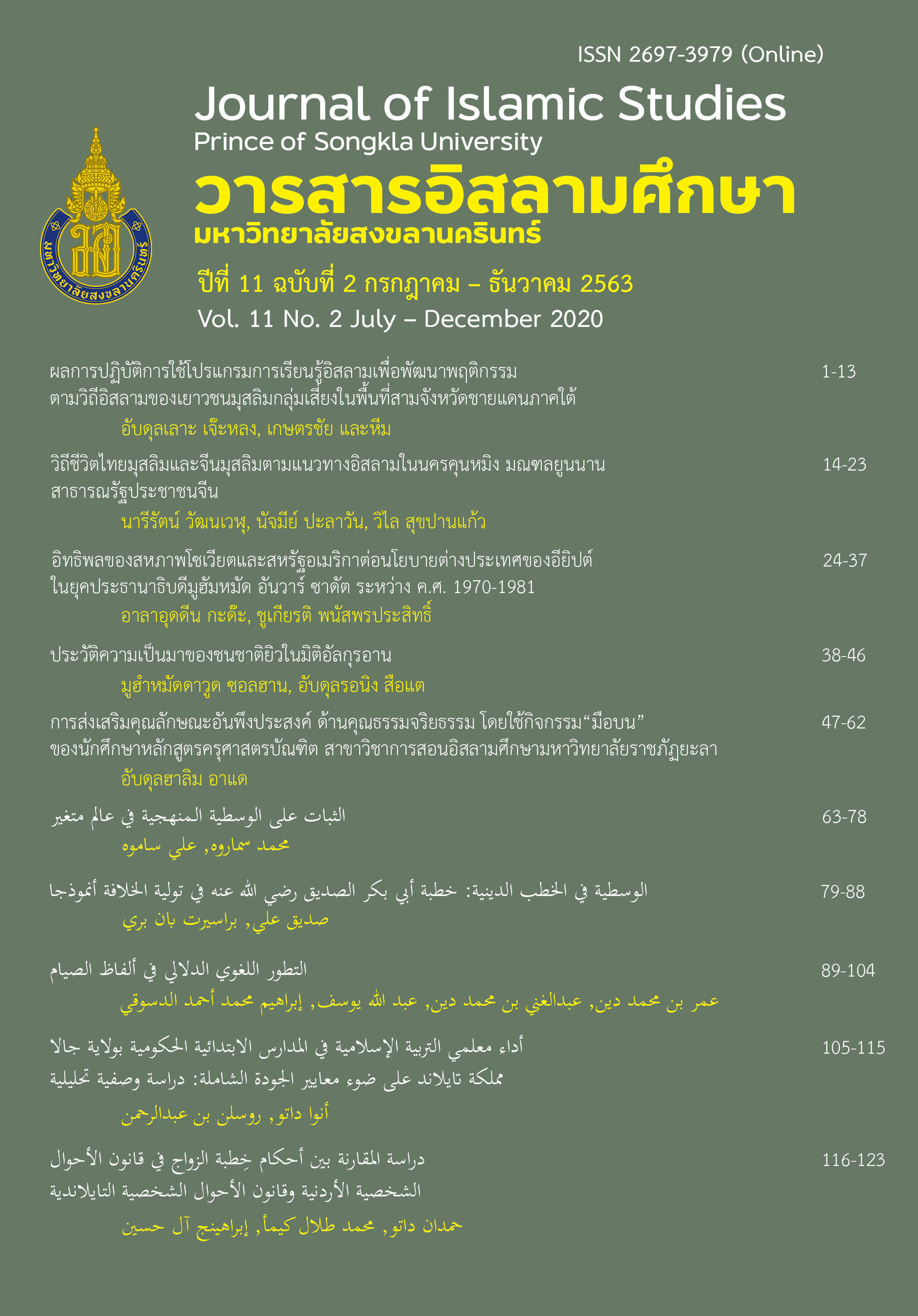The Performance of Islamic Education Teachers in Government Primary Schools in Yala Province, Kingdom of Thailand on Comprehensive Quality Standards: An Analytical Descriptive Study
Keywords:
Islamic education teachers' performance, government primary schools, total qualityAbstract
The concept of comprehensive quality in primary schools gives competitive strength to educational institutions, with its cumulative experiences in implementing the concept of comprehensive quality and applying its standards to government schools in Yala province, Kingdom of Thailand. The research adopts the descriptive and analytical method. The research concluded the following results: The overall quality standards related to the four aspects of teachers (personal, scientific, professional, educational, and social) were achieved overall from the sample evaluations with a very high level of significance with an arithmetic mean (4.29) and a standard deviation (0.69); achieved in the social aspect On the first ranking
with a very high level of significance, with an arithmetic mean (4.40) and a deviation It was achieved on the personal side On the second ranking with a very high level of significance, with a mean (4.31) and a standard deviation (0.74). It has also been achieved in the scientific aspect On the third ranking with a very high level of significance), with a mean (4.23) and a standard deviation (0.70). Then it was achieved on the educational (professional) side On the fourth ranking with a very high level of significance, with an arithmetic mean (4.23) and a standard deviation (0.71).
References
الأغا إحسان والأستاد، محمود. (2000). مقدمة في تصميم البحث التربوي. ( د.ط). فلسطين: مكتبة الرنتيسي، غزة
العساف، صالح بن حمد. (1989). المدخل إلى البحث في العلوم السلوكية (ط 4). الرياض: مكتبة العبيكان
حلَّس، داؤود درويس. (2006). دليل الباحث في تنظيم وتوضيح البحث في العلوم السلوكية. (د.ط). فلسطين
http://www.alimam-master.com مرسي. (1986). المنهج الوصفي التحليلي. أسترجعت في تاريخ 21/2/2020م، من
Downloads
Published
How to Cite
Issue
Section
License
Copyright (c) 2020 Journal of Islamic Studies, Prince of Songkla University

This work is licensed under a Creative Commons Attribution 4.0 International License.
All articles Published in The Journal of Islamic Studies are author’s opinions, and not the responsibility of the Faculty of Islamic Sciences nor the editorial board. However any citation should be referred to the journal.
















